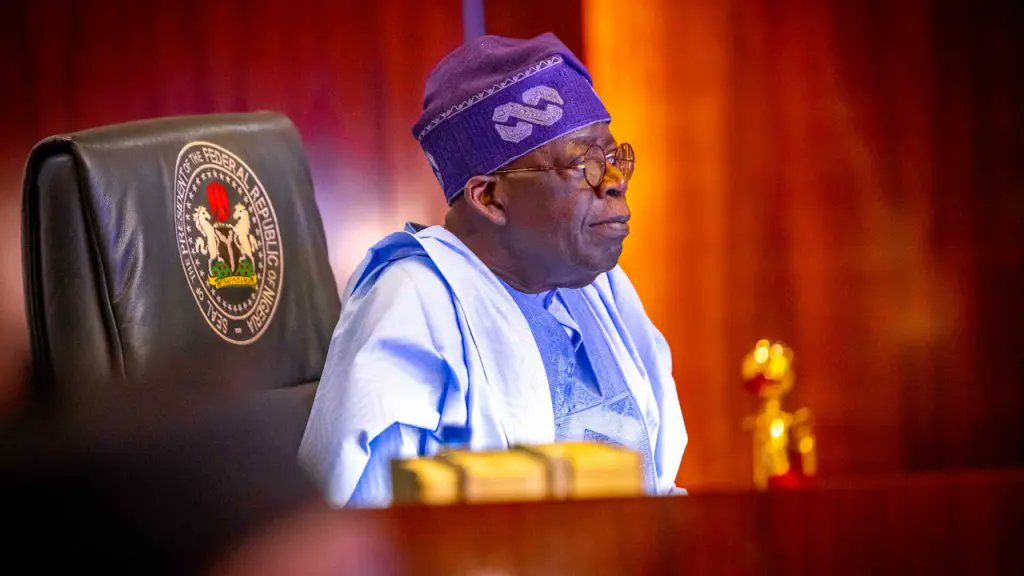Amidst Nigeria’s continued debt indulgence, President Bola Tinubu recently informed the country that the Federal Government has met its revenue target and is no longer borrowing to meet its responsibilities. As the chief accounting officer of the country, the President’s statement carries an unusual weight and should serve as the most credible version of the state of affairs of the government. But there are many reasons why his position has raised more debates than necessary.
First, the most current budget performance report, which was the third quarter of 2024, puts the revenue performance at 82 per cent. But the fact that the country overruns the debt financing projection by 43 per cent to nearly N9 trillion in the first nine months of last year complicated the revenue-expenditure equation. To resolve this complication, debt accumulation should scale down drastically while revenue is truly creatively expanded.
Nigeria’s public debt has become a spectre that looms large over every economic conversation, to the extent that it was one of the most debated issues during the 2023 general elections. For a country that spent over half of its public revenue on debt servicing, it is not surprising that this became an attention-grabbing issue.
And the speed of growth of the stock of public debt in the last administration has not made it less of a concern. From about N12 trillion, the public debt stock ballooned to nearly N100 trillion. It was thus consoling when the Minister of Finance and Coordinating Minister of the Economy, Wale Edun, told wary Nigerians that the administration would shun borrowing and depend on creative revenue mobilisation to fund the economy out of doldrums.
Sadly, the total debt figure has even increased by about 50 per cent to its current N150 trillion. Understandably, the expansion was mainly driven by naira depreciation – another red flag about the structure of the national debt.
The latest revelations did not seem to offer as much assurance as the President did. Institutions that are meant to checkmate the executive or provide technical support to the government to prevent the sour repercussions of unsustainable debt accumulation were openly trading blame. The Speaker of the House of Representatives, Tajudeen Abbas, retracted his reported concern against President Tinubu’s alleged borrowing – a statement now debunked by the lower chamber of the National Assembly. A day after Abbas’ jab hit the digital media, the Director-General of the Debt Management Office (DMO), Patience Oniha, at a West African forum, told the public that Nigeria was among the highest indebted countries in the region, and warned against foreign exchange (FX) exposure risk going forward.
Indeed, Nigeria’s public debt has become a spectre that looms large over every economic conversation. With the DMO putting the country’s debt stock at nearly N150 trillion, the narrative is no longer about whether borrowing is necessary, but whether the current trajectory is sustainable. In truth, the rising debt is both a mirror of the state’s fiscal fragility and a warning against the dangers of mortgaging tomorrow to pay for today’s inefficiencies and poor judgment.
Successive administrations have leaned on the argument that debt is not inherently bad. Economists validate this on the grounds that borrowing, when judiciously applied, can stimulate growth, fund infrastructure and lay the foundation for economic prosperity. This is the rationale that fuels today’s global tendency towards indebtedness, with the previously loan-shy countries such as Germany now indulging in debt accumulation as well.
But Nigeria’s case has been different. Borrowing has often served as a stopgap for weak revenues, a cushion for ballooning recurrent expenditures, turbocharged by big government, and a convenient escape from the hard work. The consequence is a debt profile that has outpaced the government’s capacity to generate the revenue needed for repayment.
The numbers tell a grim story. Debt servicing, at some point, gulped more than 95 per cent of the Federal Government’s revenue, leaving little room for infrastructure investment. The state, in effect, was borrowing to pay salaries, service old loans and keep the machinery of governance running. Commendably, the situation has improved but an above 60 per cent debt to revenue ratio, as claimed by the government, still does not support efficient fiscal sustainability.
The debt pattern has entrenched a dangerous, vicious cycle. As revenues shrink in real terms, following the sharp depreciation of the naira and ultra-high inflation rate, while expenditure obligations mount, the government runs back to lenders, domestic and foreign alike, deepening its vulnerability. To break this cycle, hard work is not only needed, but fiscal discipline is also necessary to block the historical leakages and wastes that have made borrowing inevitable. Even more troubling today is the opacity surrounding some of the loans. Nigerians are too often left in the dark about the terms of agreements, the timelines of repayment and the actual utilisation of borrowed funds. The lack of transparency fuels distrust and raises questions about the prudence of those who commit future generations to such obligations.
Still, the problem of debt is not just about figures. It is about leadership, vision and political will. Other countries have borrowed their way into prosperity while Nigeria appears to be borrowing its way into insolvency. The challenge is not the existence of debt, but the failure to deploy it productively. While debts grow, roads remain riddled with potholes; power supply is still epileptic and industries operate in hostile conditions. If the trillions of naira borrowed in the past had been successfully channelled into transformative infrastructure and productive investments, the country’s capacity to service its debt would not be in question.
There must be a change of course. First, the government must drastically improve revenue mobilisation — not through punitive taxation on Nigerians and businesses as the current fiscal template appears to do, but by expanding the tax base, curbing leakages and reforming key sectors such as solid minerals to serve as a major revenue earner.
Also, recurrent expenditure must be tamed. The political class cannot continue to preach austerity to citizens while maintaining a lavish lifestyle funded by debt. Transparency and accountability are non-negotiable. Every loan must be tied to visible projects and every kobo accounted for, going forward.
Nigeria’s debt dilemma is a reminder that countries, like individuals, cannot spend their way out of poverty by relying on the credit cards of future generations. Prudence, discipline and foresight are the only antidotes. The longer the country delays this reckoning, the deeper and wider the hole becomes – and the heavier the burden passed to those yet unborn.






